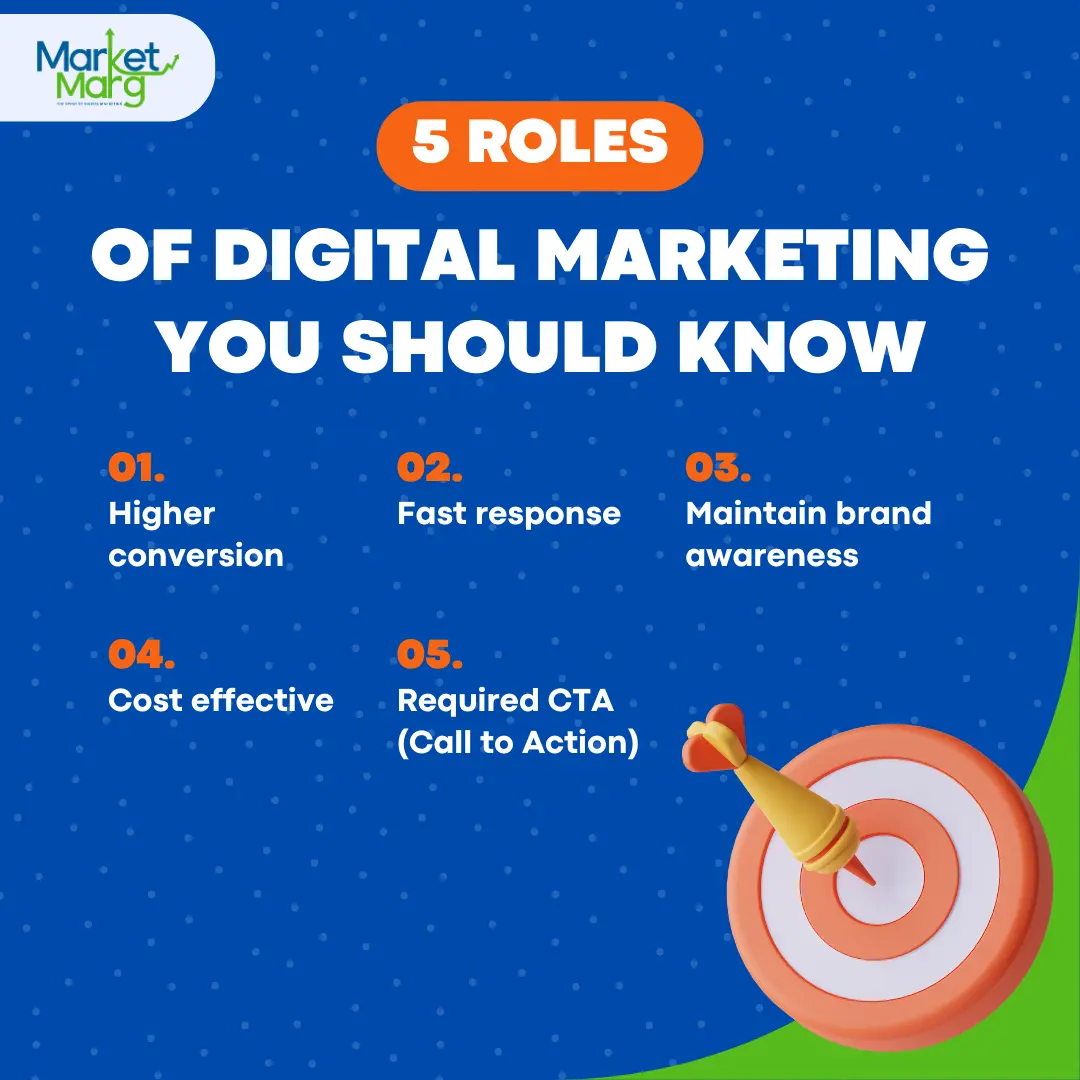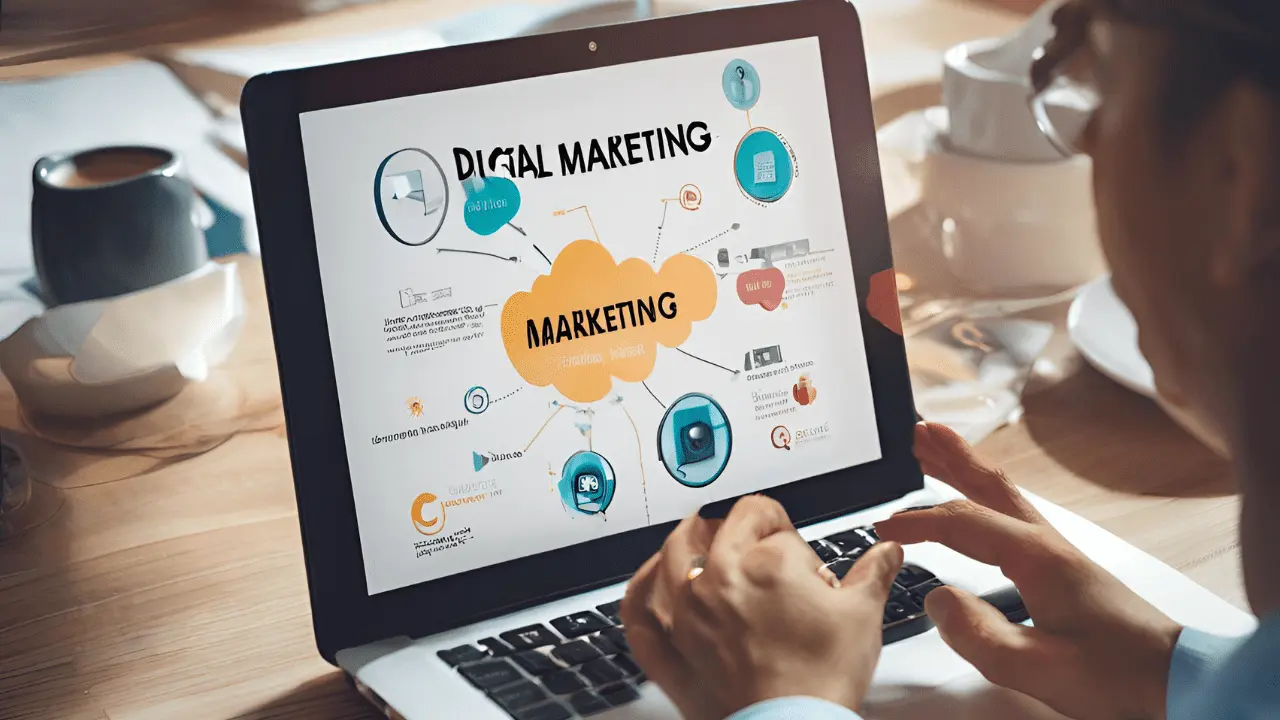Discover how digital marketing can drive business growth. Learn about SEO, PPC, social media, and more to boost your online presence and sales.
Digital marketing has transformed the way businesses operate and grow in the modern world. If you’re curious about how digital marketing can fuel business growth, you’re in the right place. Let’s dive into the exciting world of digital marketing and discover its vital role in driving success.
Table of Contents
Introduction
Digital marketing is no longer a buzzword; it’s a crucial aspect of business strategy in today’s digital era. But what exactly is digital marketing, and why is it so important for business growth? In this article, we’ll explore the various facets of digital marketing and how they contribute to the expansion and success of businesses.
What is Digital Marketing?
Digital marketing encompasses all marketing efforts that use the internet or an electronic device. Businesses leverage digital channels such as search engines, social media, email, and other websites to connect with current and prospective customers. But why has digital marketing become such a game-changer for business growth?
The Importance of Digital Marketing
Digital marketing allows businesses to reach a broader audience than traditional marketing methods. It levels the playing field for small and large companies alike. Whether you’re a local bakery or a multinational corporation, digital marketing can help you attract and retain customers.
Increased Online Visibility
Imagine your business is like a ship in the vast ocean of the internet. Digital marketing acts like a lighthouse, guiding potential customers to your harbor. By optimizing your online presence, you ensure that people can find your business when they search for products or services you offer.
Search Engine Optimization (SEO)
SEO is the process of improving your website’s visibility on search engines like Google. When done right, SEO can help your website rank higher in search results, driving more organic traffic to your site. Think of SEO as a map that leads customers straight to your door.
Targeted Advertising
Traditional advertising can be like casting a wide net and hoping for a catch. Digital marketing, on the other hand, allows you to target specific audiences with precision.
Pay-Per-Click (PPC) Advertising
PPC advertising lets you place ads on search engines and social media platforms. You only pay when someone clicks on your ad. This method ensures that your marketing budget is spent on potential customers who are genuinely interested in your offerings.
Enhanced Customer Engagement
Engaging with customers has never been easier, thanks to digital marketing. Social media platforms, blogs, and email campaigns provide opportunities to interact with your audience, gather feedback, and build lasting relationships.
Social Media Marketing
Social media platforms like Facebook, Instagram, Twitter, and LinkedIn offer a direct line of communication with your audience. By sharing valuable content and engaging with followers, you can create a loyal community around your brand.
Email Marketing
Email marketing allows you to send personalized messages to your subscribers. Whether it’s a newsletter, a promotional offer, or a personalized recommendation, email marketing helps keep your audience engaged and informed.
Cost-Effectiveness
Digital marketing is often more affordable than traditional marketing methods. It allows businesses of all sizes to compete on a level playing field. You can start small and scale your efforts as your business grows.
Measurable Results
One of the biggest advantages of digital marketing is the ability to track and measure results. With tools like Google Analytics, you can see how your campaigns are performing and make data-driven decisions to improve your strategy.
Content Marketing
Content is king in the digital marketing world. By creating valuable, relevant content, you can attract and retain a clearly defined audience. Content marketing includes blog posts, videos, infographics, and more.
Blog Posts
Regularly updating your blog with informative and engaging posts can establish your authority in your industry and drive traffic to your website.
Videos
Videos are a powerful way to convey your message and engage with your audience. Platforms like YouTube and social media make it easy to share video content.
Social Media Marketing
Social media is a powerful tool for reaching a broad audience and building brand awareness. By creating and sharing valuable content, you can attract followers, generate leads, and drive sales.
Email Marketing
Email marketing is an effective way to nurture leads and keep your audience informed. Personalized emails can help build trust and encourage repeat business.
Search Engine Optimization (SEO)
SEO is crucial for improving your website’s visibility and attracting organic traffic. By optimizing your website and content for search engines, you can reach more potential customers.
Pay-Per-Click (PPC) Advertising
PPC advertising allows you to reach your target audience quickly and effectively. By bidding on keywords and placing ads on search engines and social media platforms, you can drive traffic to your website and increase sales.
Conclusion
Digital marketing is a vital component of business growth in the modern world. By leveraging the power of digital channels, businesses can reach a broader audience, engage with customers, and drive sales. Whether you’re a small business or a large corporation, digital marketing can help you achieve your goals and grow your business.
FAQs
1. What is digital marketing?
Digital marketing encompasses all marketing efforts that use the internet or an electronic device. It includes search engine optimization (SEO), social media marketing, email marketing, and more.
2. Why is digital marketing important for business growth?
Digital marketing allows businesses to reach a broader audience, engage with customers, and drive sales. It levels the playing field for small and large companies alike.
3. How can I improve my online visibility?
Improving your online visibility involves optimizing your website for search engines, creating valuable content, and engaging with your audience on social media.
4. What is SEO?
SEO, or search engine optimization, is the process of improving your website’s visibility on search engines like Google. By optimizing your site and content, you can attract more organic traffic.
5. How does PPC advertising work?
PPC, or pay-per-click, advertising allows you to place ads on search engines and social media platforms. You only pay when someone clicks on your ad, ensuring that your marketing budget is spent on potential customers who are genuinely interested in your offerings.



